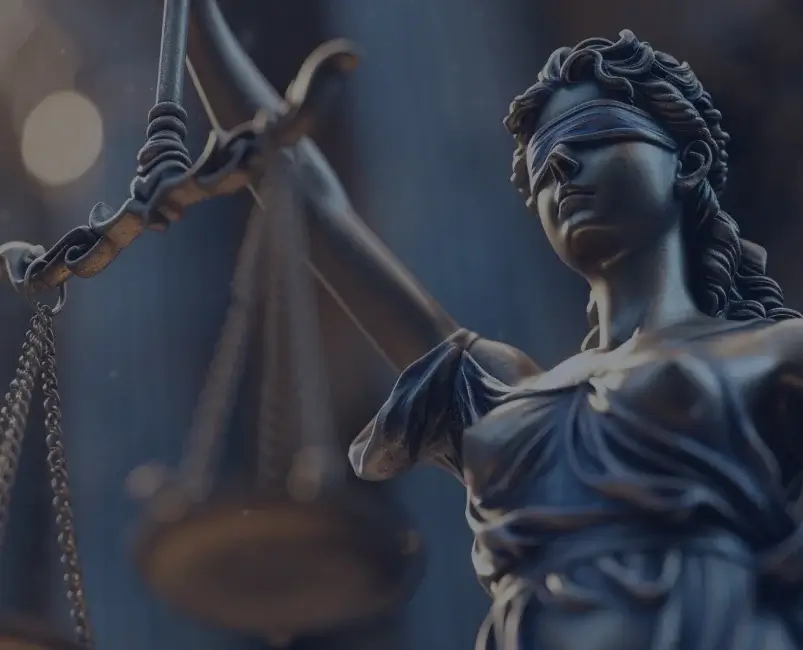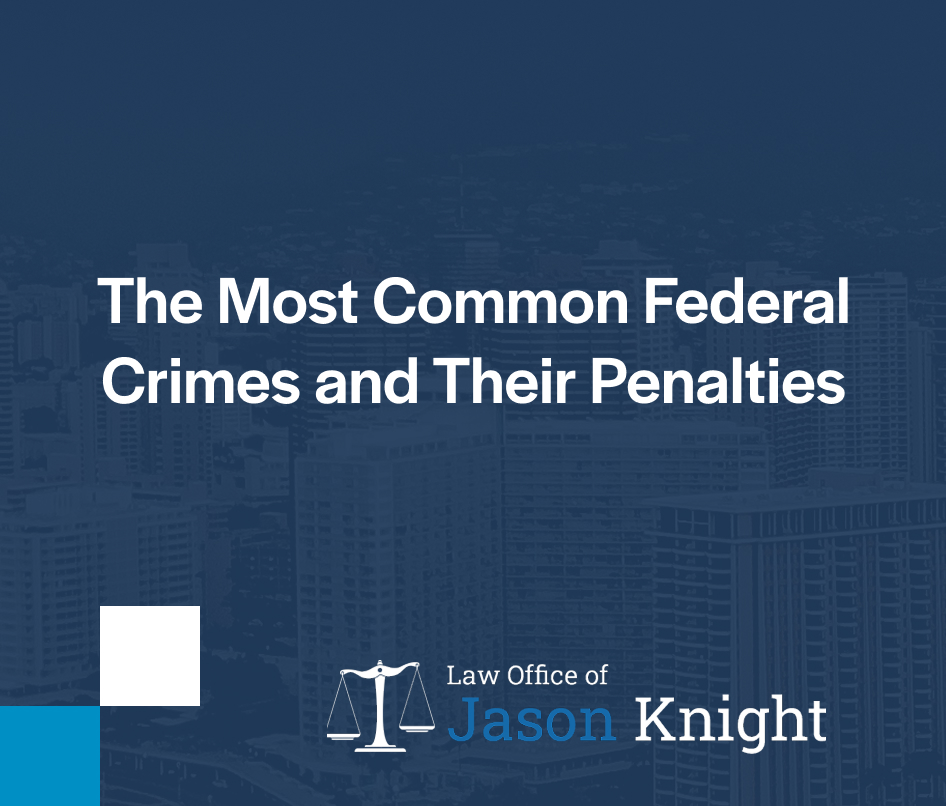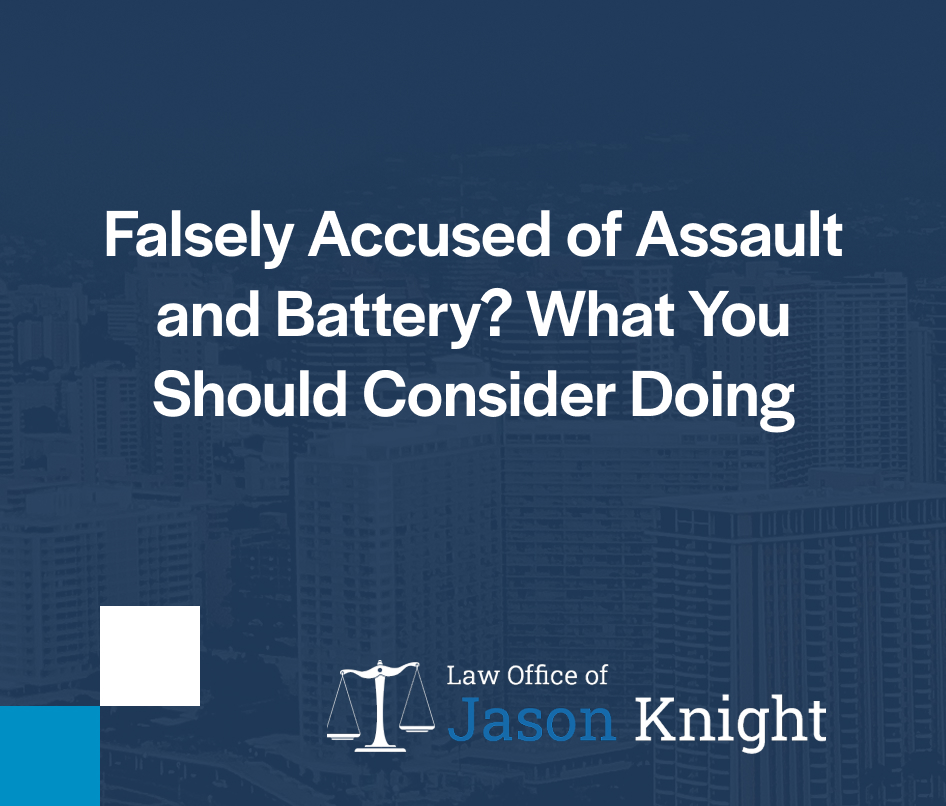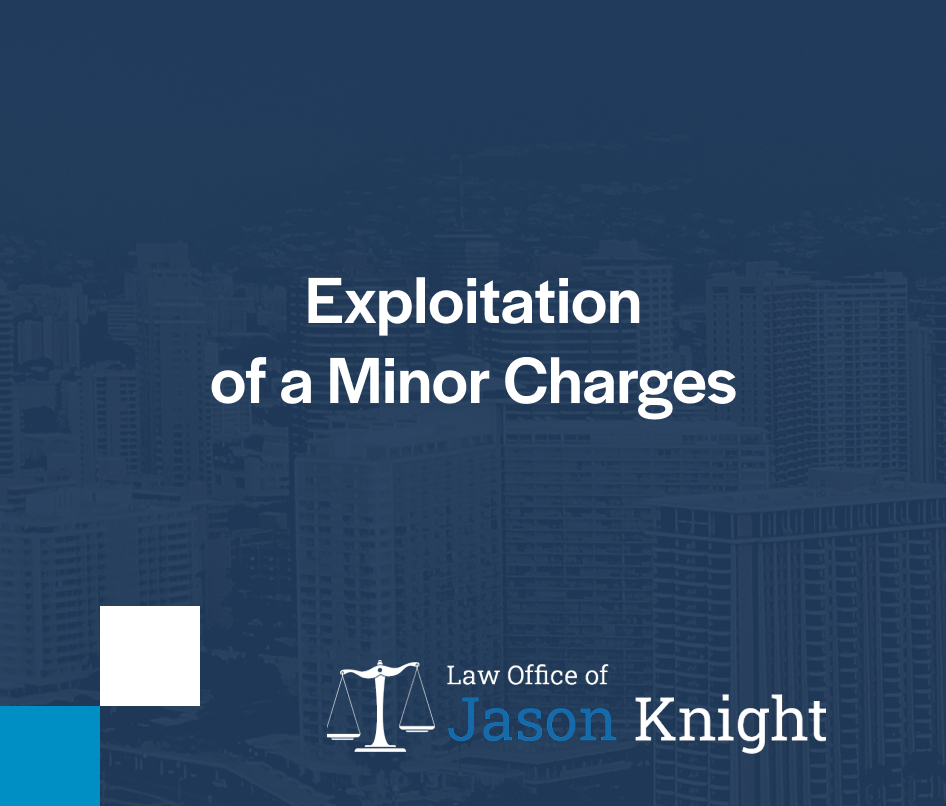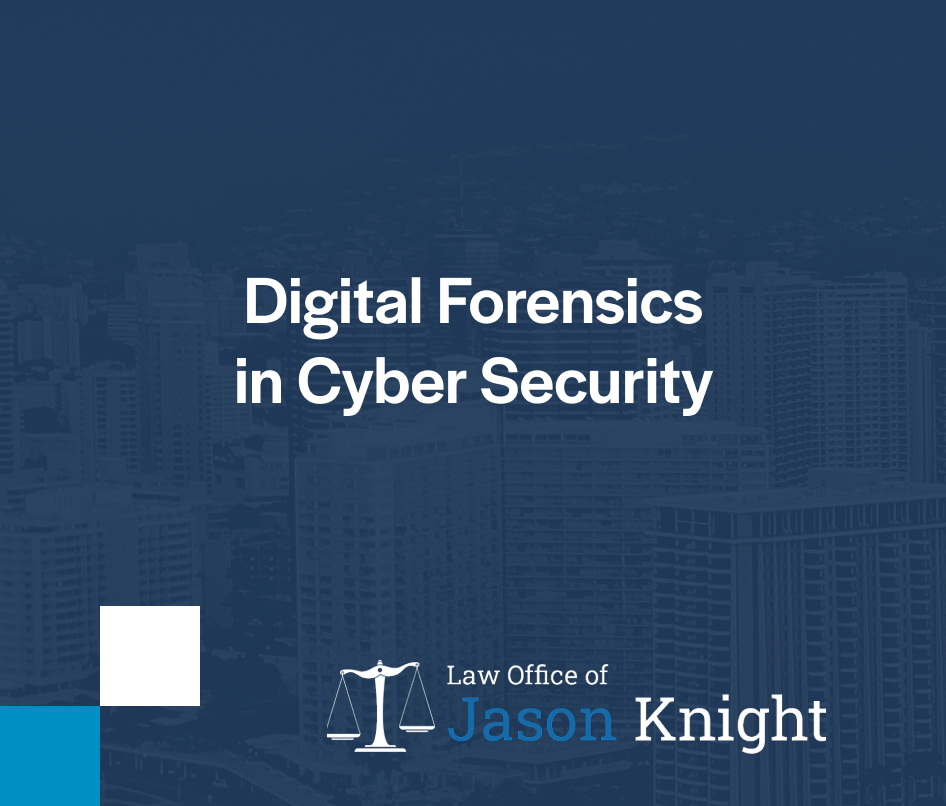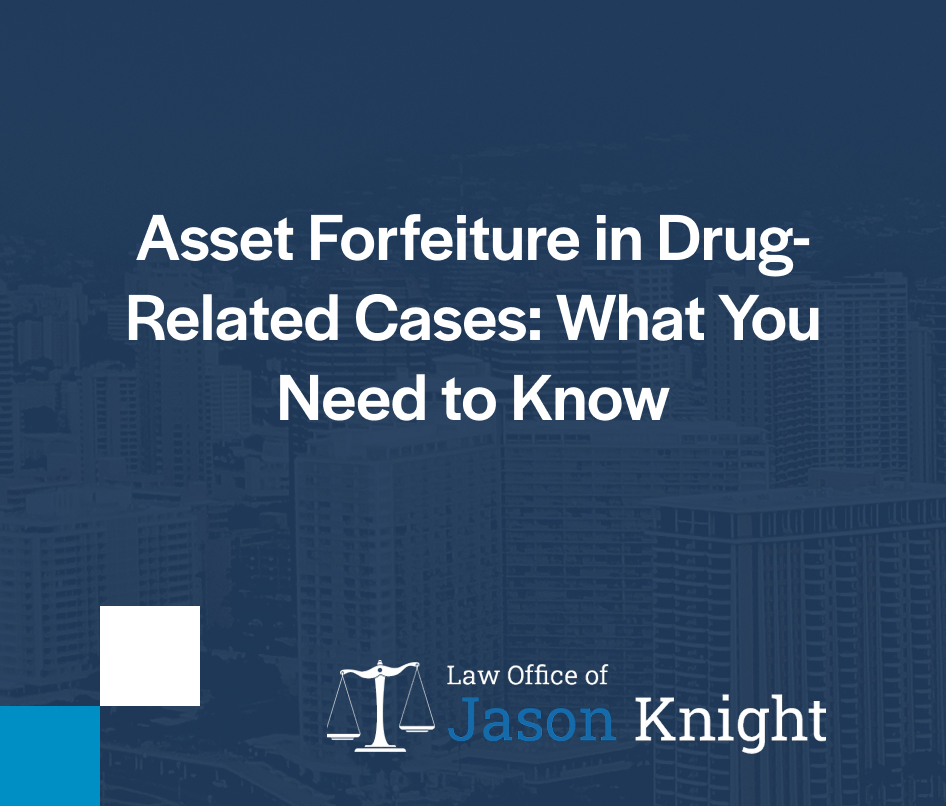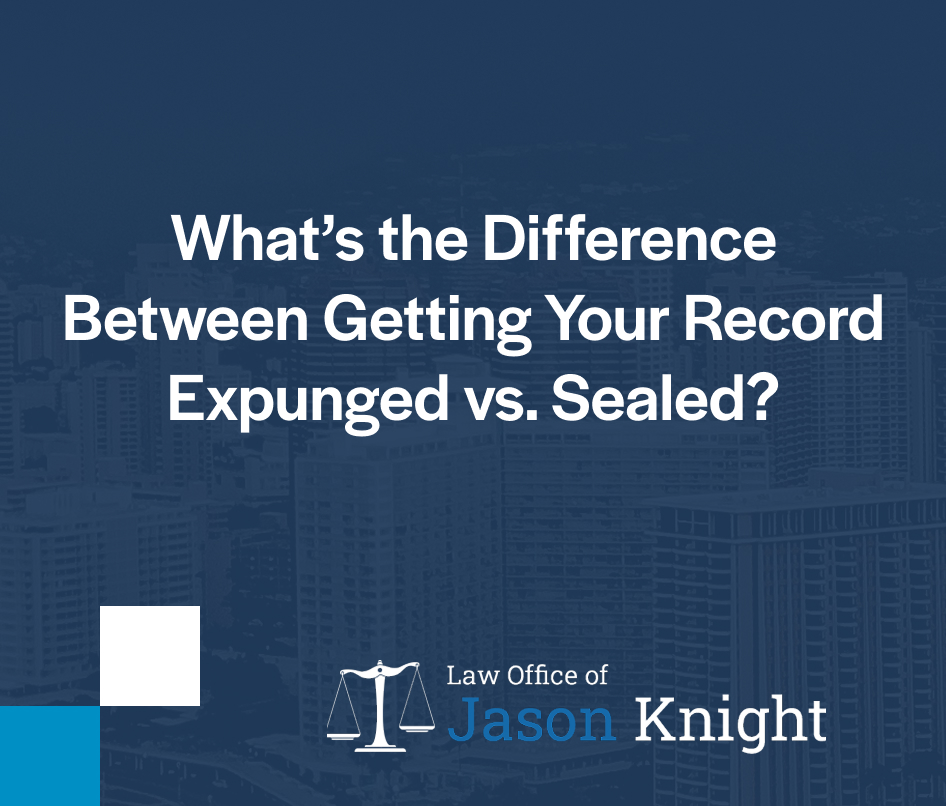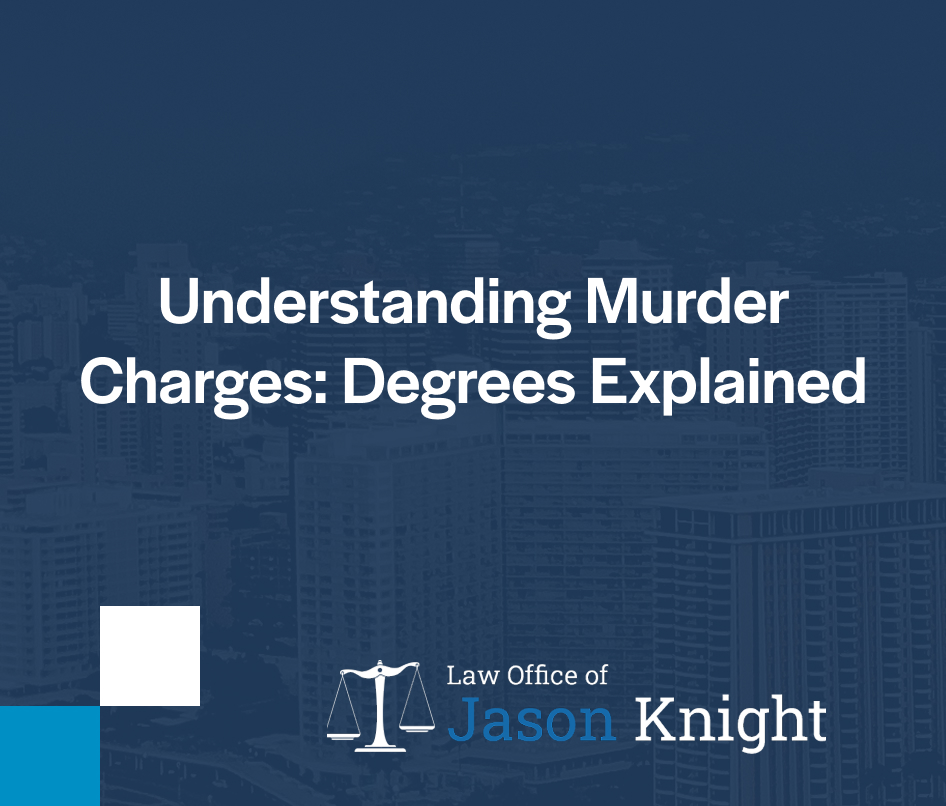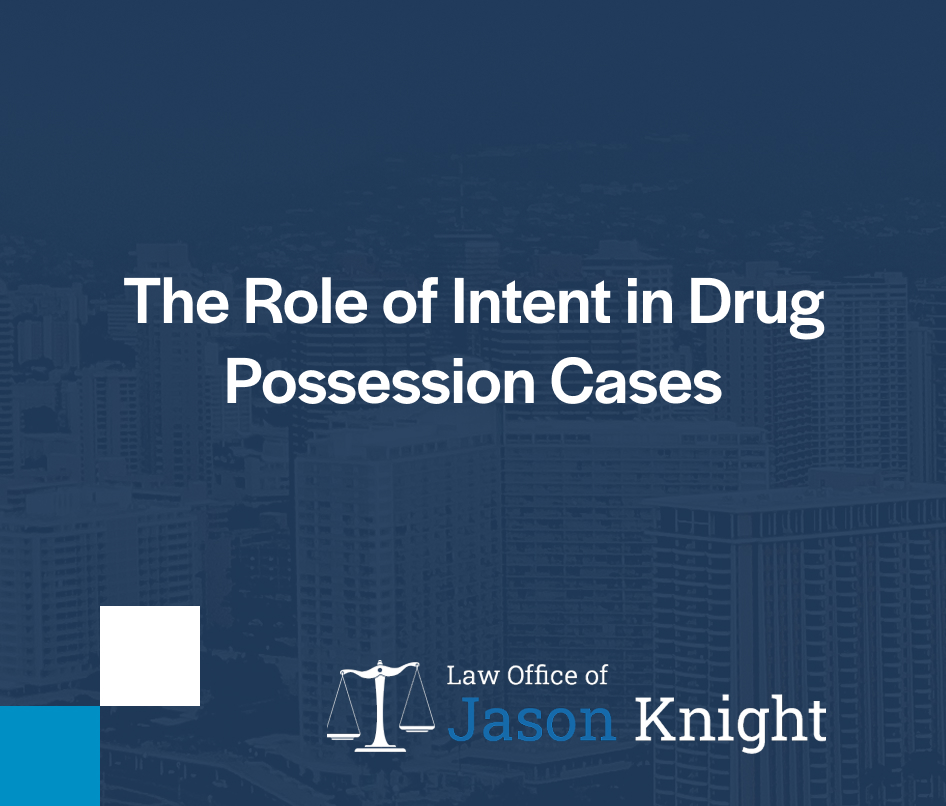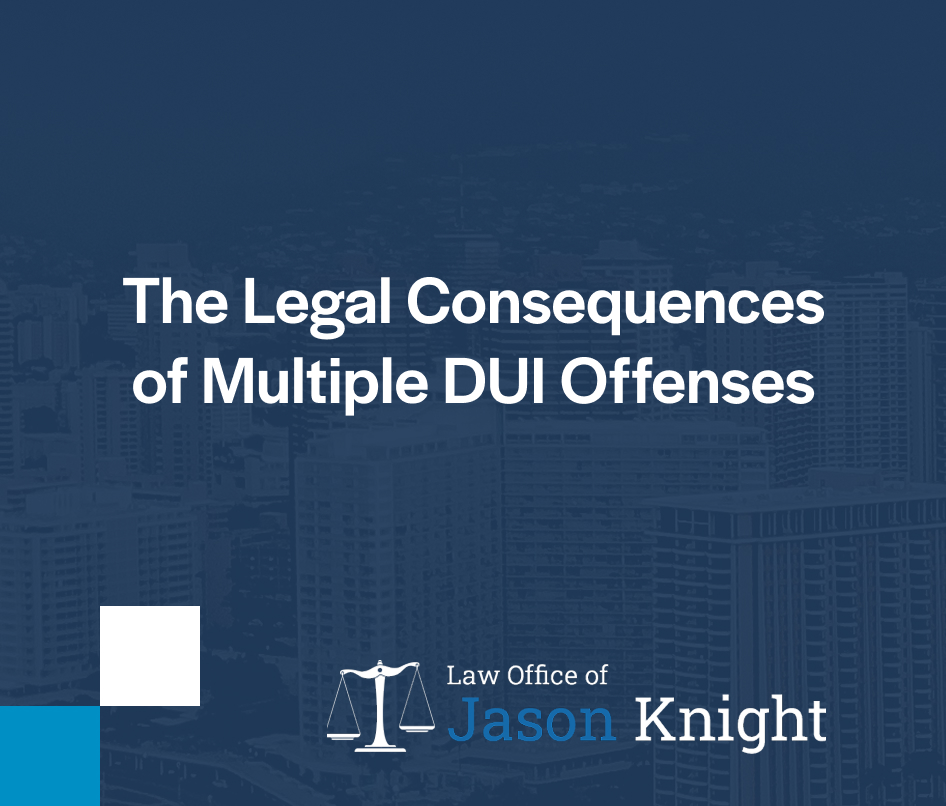The stakes couldn’t be higher when the federal government comes after you. You’re not just up against an accusation but against a system designed to win. So, what are federal crimes, and what makes them so serious? Federal crimes often involve actions that cross state lines, harm national interests, or violate federal laws. From drug trafficking to fraud, federal cases can feel like David versus Goliath—except the United States government backs Goliath.
Fortunately, you’re not powerless even when the odds seem stacked against you. With a skilled federal defense attorney by your side, you can fight back. With over 17 years of experience and hundreds of cases under our belts, the Law Office of Jason Knight provides tireless, trial-tested representation to safeguard your rights, freedom, and future. Contact us today and secure the dedicated and strategic defense you need to face federal charges head-on.
What Are Federal Crimes?
Federal authorities prosecute federal crimes under U.S. federal law instead of state law. What makes federal crimes unique is the nature of the offenses and the legal process surrounding them. Well-resourced agencies such as the FBI, DEA, or Secret Service often investigate federal crimes, and cases are tried in federal court under strict procedural rules.
Federal sentencing guidelines also differ significantly from those in state courts. While state courts often offer more discretion in sentencing, federal judges rely heavily on the United States Sentencing Guidelines, which provide structured recommendations based on the severity of the crime and the defendant’s criminal history. This often results in longer sentences, mandatory minimums, and fewer opportunities for alternative sentencing options like probation.
Because all types of federal crimes involve high stakes and life-altering penalties, working with a defense attorney who understands this complex system is critical. Attorney Jason Knight brings unparalleled experience and insight into federal cases, protecting your rights at every stage.
What Are the Types of Federal Crimes?
The list of types of federal crimes is extensive. It would be impossible to list them all here, but examples include anti-trust, exploitation, commodities price fixing, counterfeiting, forgery, and hate crimes. Let’s take a closer look at the most common federal crimes.
What Are the Most Common Federal Crimes?
This list breaks down the six most common federal crimes and their penalties.
1. Drug Trafficking
Drug trafficking involves the production, distribution, or possession of controlled substances with intent to distribute. Federal agencies like the DEA treat these cases as high priorities. Sentences depend on the drug type and amount. For instance, trafficking 5 kilograms of cocaine can result in a minimum 10-year sentence under federal law. In addition to lengthy prison sentences, individuals convicted of trafficking may face asset forfeiture, mandatory minimum sentences, and stringent post-release supervision.
2. Fraud
Fraud encompasses crimes like mail fraud, wire fraud, and securities fraud. These offenses typically involve schemes to deceive others for financial gain. Convictions may lead to years in prison and hefty fines. Wire fraud, for example, can carry penalties of up to 20 years. Many federal fraud cases also result in restitution orders, requiring convicted individuals to repay stolen amounts.
3. Immigration Violations
Immigration-related offenses include illegal reentry, human smuggling, and visa fraud. These cases often involve heightened scrutiny and swift enforcement by federal agencies. Illegal reentry after deportation can result in a sentence of up to 20 years, depending on prior criminal history. In some instances, these crimes may also intersect with state charges, creating additional legal challenges.
4. Cybercrime
Cybercrimes include hacking, identity theft, and online fraud. These cases are increasingly common in today’s digital world. Unauthorized computer access can result in up to 10 years in prison, with harsher sentences for national security breaches. A conviction for cybercrime can also result in restrictions on internet access as a condition of probation.
5. Firearms Offenses
Firearms offenses range from illegal possession to using a weapon during a federal crime. Felon-in-possession charges can carry up to 10 years in prison, with harsher penalties for crimes involving violence. The use of a firearm during the commission of certain crimes can also add mandatory sentencing enhancements.
6. Tax Evasion
Tax evasion involves willfully avoiding federal tax payments. Convictions can result in up to 5 years in prison, fines of $250,000, or both. Beyond criminal penalties, tax evasion convictions may include civil fines and the forfeiture of property or assets.
The Law Office of Jason Knight Will Fight For You
When facing federal charges, the stakes demand more than experience—you need someone who truly understands the system. Jason Knight, a criminal defense attorney with 17 years of experience, including time as a Navy veteran and Rhode Island state prosecutor, uses his deep understanding of the law to anticipate the government’s strategy and craft an individualized defense for each client. Recognized by the Boston Globe and Providence Journal, Jason Knight has earned a reputation for his tireless dedication to his clients.
At the Law Office of Jason Knight, the emphasis isn’t just on legal representation, but on partnership. Our approach is thorough and methodical, ensuring we examine every piece of evidence and explore every avenue of defense. You’ll have a firm that offers emergency appointments 24/7, free case reviews, and a commitment to affordable, compassionate advocacy. With trial-tested strategies and unwavering dedication, Jason Knight will fight for your rights, protect your liberty, and help you reclaim your future.
Take Action Now to Protect Your Future
Your freedom is too important to leave to chance. Don’t let the weight of a federal charge crush you—whether you’re asking what is a federal crime or have been accused of one—take control by partnering with a defense attorney with the skills, experience, and determination to stand by your side. Call the Law Office of Jason Knight today to schedule your free case review and build a defense that puts you back in control.
Resources
18 U.S. Code §1348. Link
18 U.S. Code §1546. Link
8 U.S. Code §1324(a). Link
18 U.S. Code §1030. Link
18 U.S. Code § 922. Link
26 U.S. Code § 7201. Link


